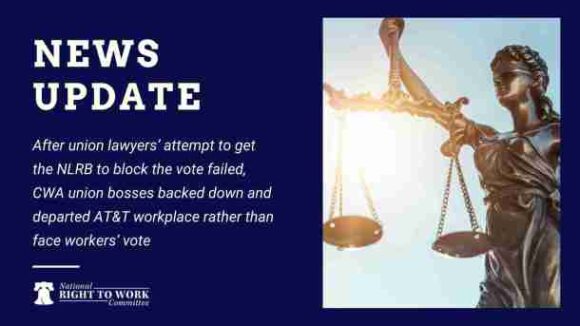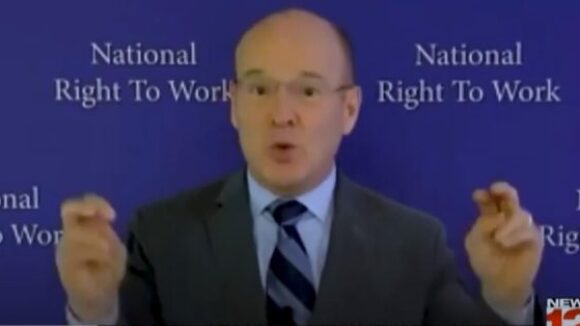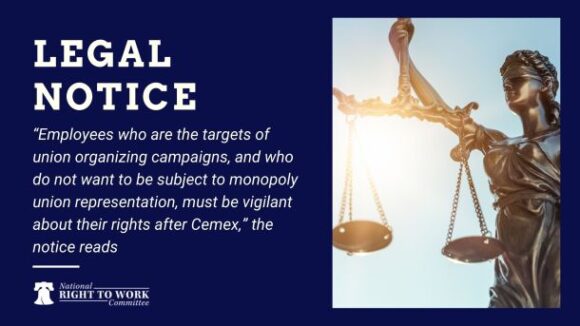As we have warned, some lawmakers are entertaining discussions about a “compromise” on the Card Check Forced Unionism Bill. Noted law professor Richard Epstein warns:
So now it appears that unions may be prepared to scrap the card check – if they can salvage the more insidious portion of the EFCA, its compulsory arbitration provision.
Here is what the key provision says: Once mediation has failed, the Federal Mediation and Conciliation Service “shall refer the dispute to an arbitration board established in accordance with such regulations as may be prescribed by the Service.” The arbitration decision then binds the parties for two years.
For the layman, here is what it means: An outpost of the Labor Department, the mediation service, will set the terms of all new labor contracts in the United States. It will do so under provisions that are undefined under the act. The FMCS will have sole authority to pick the arbitration panel, which will have the power to draft, on its own initiative, detailed contract provisions, tables and appendices that can run to more than 1,000 pages. The arbitrators’ decision will be final: The EFCA allows neither employers nor unions to appeal arbitrators’ decisions to a neutral judicial body.
No one has the slightest idea how this bill would work in practice. Arbitration is common in labor relations, but only for grievances under contracts in an environment that gives both parties control over the arbitration procedures and the selection of arbitrators.
In contrast, interest arbitration requires a panel of arbitrators to draft a contract from scratch to cover every issue: wages, benefits, overtime, layoffs, transfers, grievances, work rules and the like. There is, unfortunately, not a single person in the United States who has any experience dealing with these matters because no business in possession of its faculties has ever surrendered every key management function to uninformed functionaries who are clueless about the operation of the business.
Unions claim that imposing this untried system of the private sector is just a walk in the park. After all, compulsory interest arbitration is used in the public sector in exchange for surrender of the right to strike. On one hand, the analogy should send chills down the spine. One major source of rigidity in public labor markets is contracts that make it impossible to restructure established operations in new ways.
Moreover, government agencies do not merge, introduce new product lines and adopt new technologies to keep pace with rivals in a competitive market. As government arbitrators dither in deciding on terms for that initial two-year decree, the global competition will hobble the firm’s economic prospects, leading to massive losses and job layoffs.
Because the EFCA spells out no operational procedures or substantive standards, it is anyone’s guess what terms the arbitrators might choose. One possibility is that the arbitration panels will simply take existing union contracts from so-called comparable businesses and apply them to the initial two-year period specified in the bill. That approach would eviscerate competition in labor markets.
Two businesses in the same market niche may have totally different modes of internal organization. Even if both FreshDirect and Peapod deliver groceries to people, each has a completely different strategy as to how to run the back end of its business. Imposing the work rules from the first business on the second could lead to an internal upheaval. It would destroy the diversity and creativity vital to private enterprise if an arbitrator is able to say, “Well, you know that Peapod does it this way, so FreshDirect, you now have to follow suit.”
Such arbitration decisions likely to stem from the EFCA would have a disastrous effect on the expansion of small businesses and the continued success of major firms.
Our labor markets are in distress, and the situation will only get worse. Sen. Tom Harkin of Iowa defends this horrific mix by noting that the original National Labor Relations Act was passed when the unemployment rate was high, so why not all, or part, of the EFCA? The answer is simple: because the unemployment rate would get higher still.


